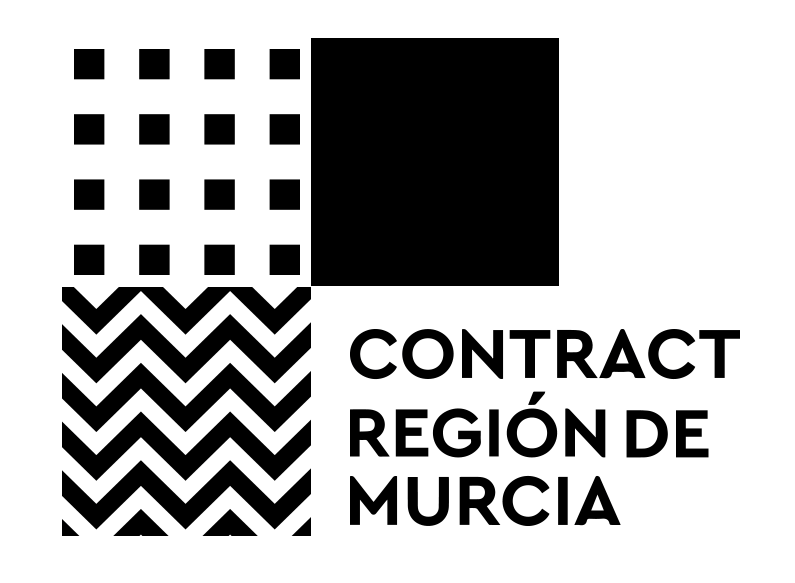Thinking outside the box’, showing the ‘back of the house’ and improving communication: how design is reinvented in the Contract Channel
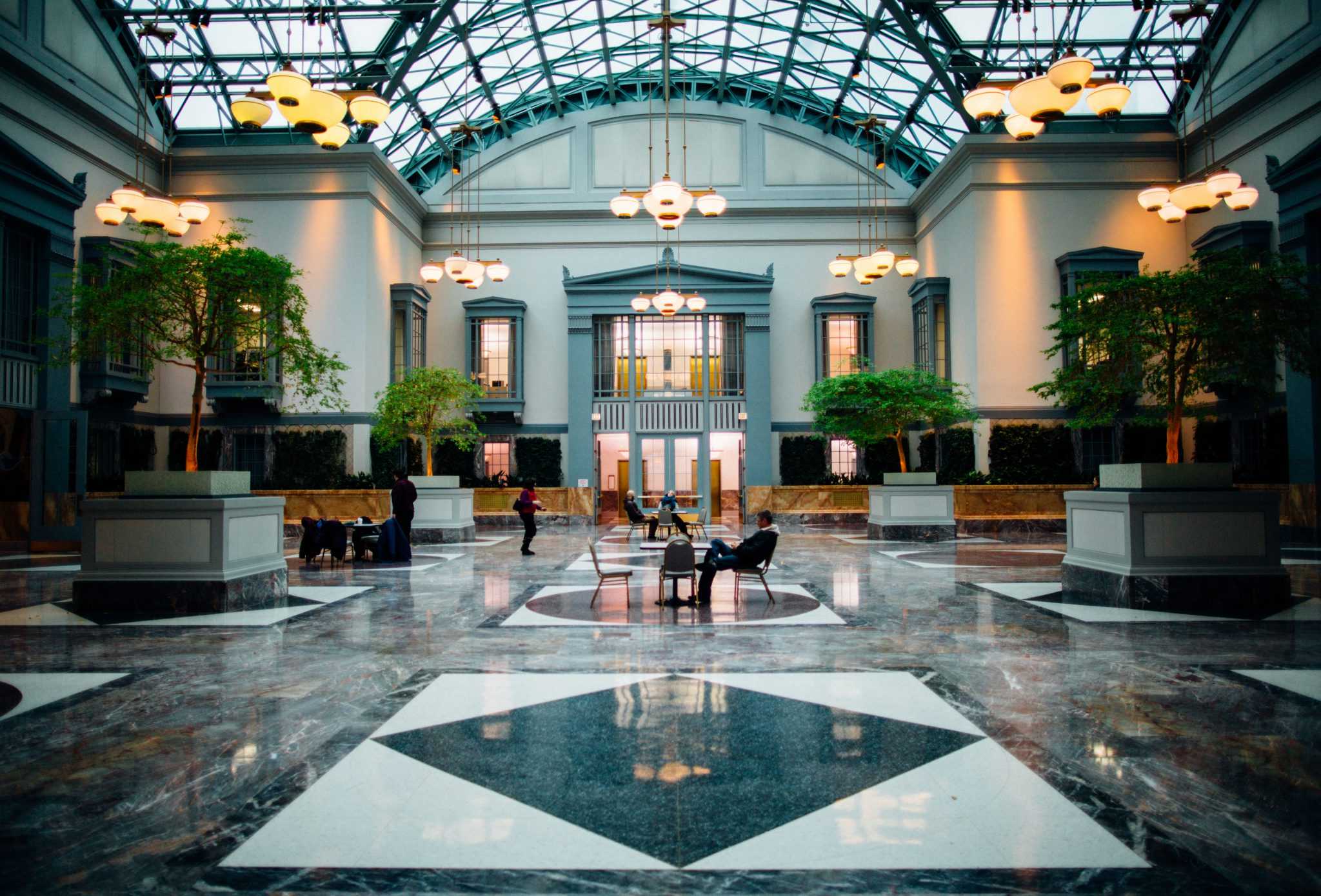
Thinking outside the box’, showing the ‘back of the house’ and improving communication: how design is reinvented in the Contract Channel
The hotel sector is committed to making its internal safety, hygiene and cleaning protocols explicit in order to convey even more confidence to guests.
Brand recognition as a guarantee of quality and peace of mind plays in favour of the large hotel chains against alternatives that cannot guarantee the protocols.
Contract Channel professionals from all over the world gathered again this week for a new webinar, this time focused on the adaptation of hospitality spaces, taking into account the protocols that are being implemented and the ability of the design to continue creating safe, comfortable spaces that continue to generate experiences. The event was organized by UNEX (Asociación Empresarial del Hábitat, su internacionalización y el contract) and had the collaboration of various national (from the regions of Aragon, Castilla La Mancha, Galicia and Murcia) and international (Society of Architects of the Dominican Republic and Expo CIHAC) organizations. In the case of Murcia, this webinar was one more activity of the Plan Contract Región of Murcia, developed by INFO Murcia.
Grabación del webinar completo (1:45h)
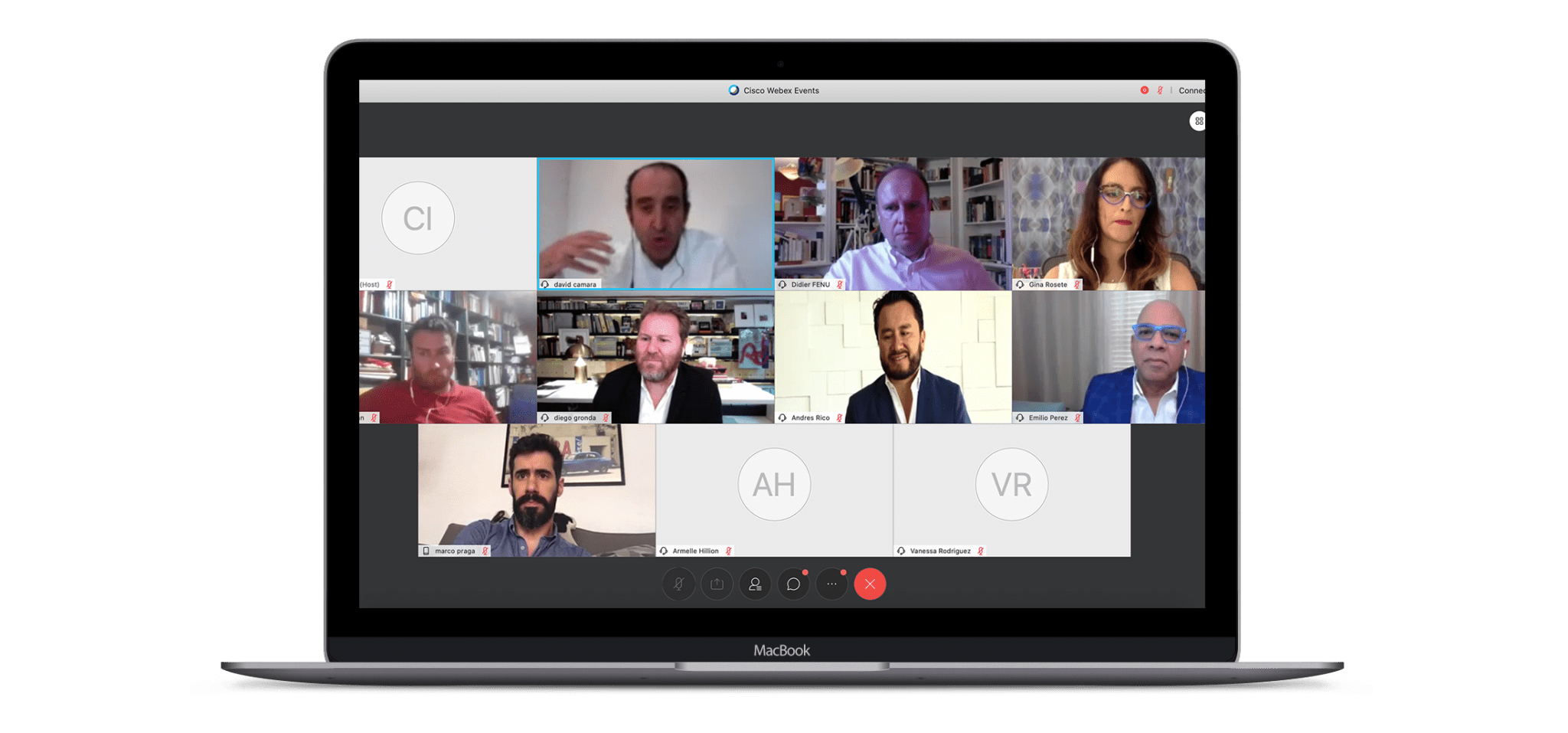
David Cámara, commissioner of the Plan Contract Región de Murcia and director of UNEX, once again acted as moderator at this international event. “We can see a horizon where the whole value chain has a plus of responsibility to see how the hospitality spaces are adapted. But this new scenario does not have to be guided by restrictive conditions, it has to be an opportunity to improve. The user must be provided with comfort, safety and health confidence, but also with experiences. That’s why it’s so important to think things through before doing them,” said Cámara, who also highlighted the need to “facilitate the operational side and, as a business, remain profitable.
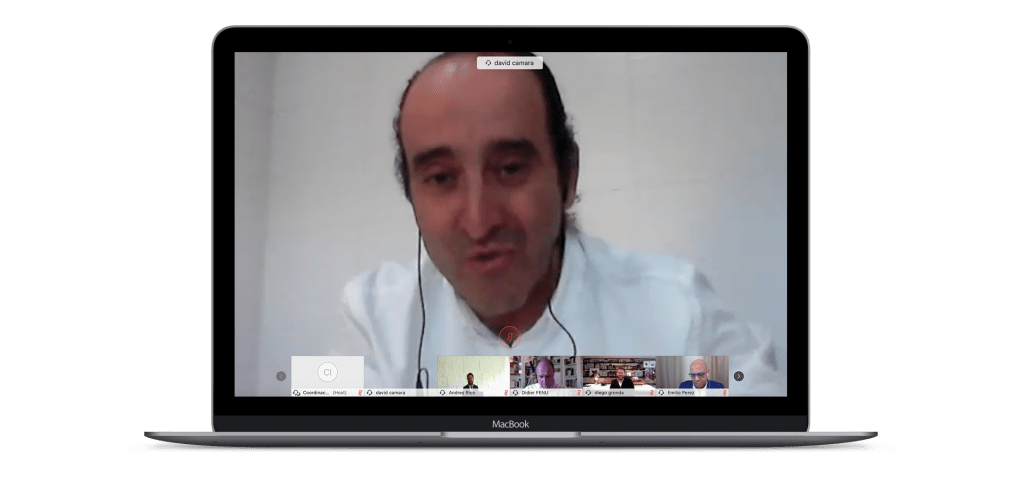
“We now have an opportunity and responsibility for the future that must empower us as fellow travelers. We have to be transversal, empathetic and humanistic,” added Cámara.
Investment, operation and design
Marco Praga, managing partner for South America at GVA, also agreed with Cámara that professionals in the sector should not be conditioned by isolation but quite the opposite: “We must work on a design that helps us to overcome this stage of confinement but also so that we do not have to repeat it”. “We must design not only for what is consumed but also for what is really needed. The health and safety protocols that are appearing are not a manual, they are flexible documents with guidelines for dealing with this situation, but we have to be aware that the reality of each country and owner (of hotel businesses) is different. As designers we have to integrate ourselves more into this collaborative system, contributing to the investment team and all the people involved in the processes. All these protocols have to stop being protocols to become customs, which will be integrated into the experiences in the long term”.
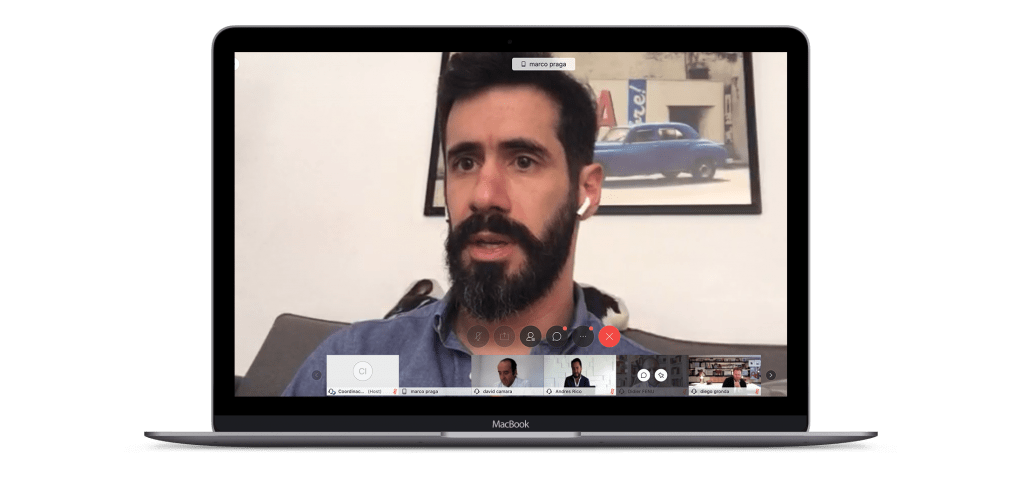
“What if this situation drags on for two or three years,” reflected Prague. “Some all-inclusive resort hotels are offering a completely different experience, with a focus on space and the outdoors. Spaces like gardens, terraces… are a great opportunity for projects within the new needs”.
“Some projects can be changed and others will not be able to lose their essence and will have to be reinvented. That’s why now we’re going to have to show the ‘back of the house’ (BOH): how we work on security, cleanliness… Up until now you didn’t have to show them, but now you do. The customer should not feel that we are just spraying him with alcohol, but that we want to improve his experience,” added Marco Prague.
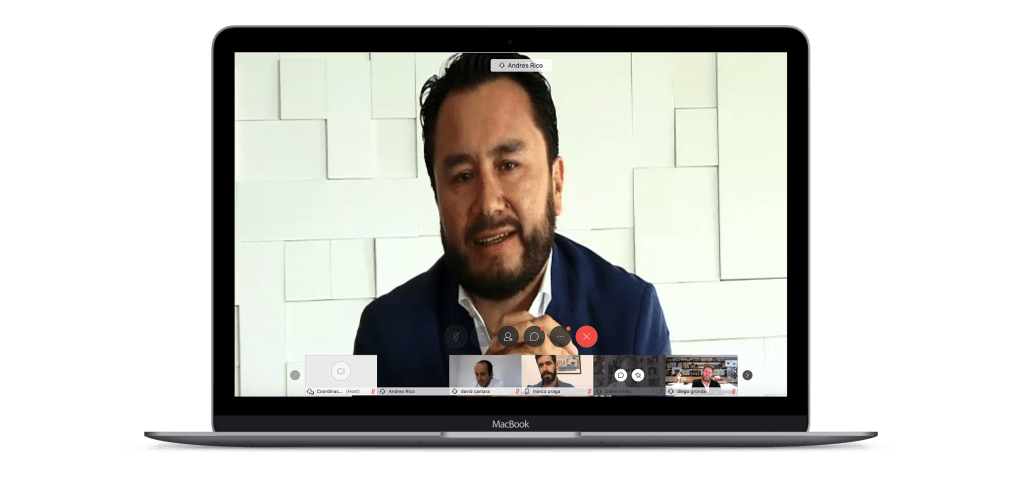
Andres Rico, Executive Vice President of the Hotel Division of the Colombian capital fund Armilla Capital, SAS, bet on new approaches, on improving communication, on technology and on increasing even more the collaboration between the different actors of the Contract Channel: “The world is rethinking if we are going to travel so much. We have to be dynamic and get out of the box, rethink the model because the hospitality sector must continue to be one of the businesses that contributes most to the GDP in many countries,” defended Rico.
For this new vision and so that new proposals can be consolidated, “the collaborative schemes today take a lot of relevance. We must create a support network where we can be designers, interior designers, hoteliers … all professionals in the chain,” said the representative of Armilla Capital.
Rico also wanted to make it clear that this commitment to creativity does not imply starting from scratch: “We must not change what we are doing well, but rather strengthen it. We have to give a lot of confidence. What remains is to see how we begin all these processes. We have to analyse plant by plant to see that all the design is efficient and complies with all health and safety regulations”.
Without a doubt, guests’ habits will change: “We are going to have to make changes in the experiences and technology is going to be part of the whole process. Today, more than ever, we must develop tools that allow us to connect with all the facilities that a hotel makes possible,” said Rico, who also made a strong defense of communication: “What guests need most is confidence and that is achieved through communication. We have to transmit with information capsules, computer graphics, social networks, on the web pages … that we already apply the protocols and that we strengthen good practices. This way we transmit tranquility”.
Rico also said discipline should be demanded from guests regarding safety and hygiene protocols because, since the sector is making a great effort, they should also contribute.
Finally, the Armilla Capital representative also stressed that two needs must be resolved: on one hand, how to communicate “in a friendly and sensory way the new experiences we are going to have in the hotel chains,” and on the other hand, “how to activate demand, which is a task shared by all.
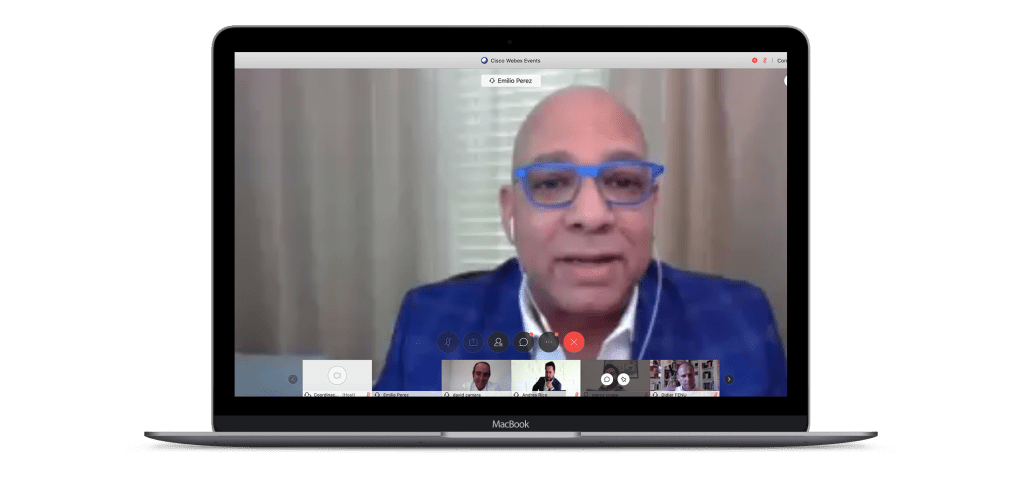
Emilio Perez, Vice President of Global Design at Marriott International, also bet on proactivity and communication in the hotel sector. From the guest’s point of view there is concern about whether the place where I am going to spend the night “is clean or not. But all hotels, long before the last six months, were fighting viruses. We’re living in a situation of optics: it’s not that it wasn’t done before, it’s that it wasn’t made explicit.
“We must re-plan and re-launch our design solutions because not all of them are suitable for all kinds of projects. We, as a group, have regulations but each country, each city, may ask for different regulations or standards, so we have to be very flexible”, he pointed out.
“When you have 30 hotel brands around the world, it’s a hard monster to tame. But they all have the same end: that the guest, when they leave the hotel, leaves happily and returns,” said Rico, who also advocated strengthening the ‘storytelling’ in the experiences of users: “The word experience has been used billions of times, but now we are in a storytelling stage. We have resorts, business hotels, boutique, luxury, ultra-luxury … and each one generates a different expectation, not experience. In this scenario, we are all storytellers.
Rico, who defined himself as an optimist, said: “I don’t think the hospitality industry is going to disappear. This situation has affected us because there were no precedents, but hospitality is not going to disappear. With the 9/11 attacks, virtual life became more important and it was thought that it would never fly again. And 2008 seemed like the end of the world because so many projects fell. But seen from today it has been exposed. I am a glass half full. We will have to make adjustments in operations, but perhaps not so much in design. We are facing a wave but we are going to swim it and go out on the other side triumphant,” he said.
How to care for the host experience
Diego Gronda, CEO of Studio Gronda, bet on “optimistic” designs. “We find ourselves in a perverse dilemma in which we use two words with the same root but opposite meanings: hospital and hospitality. It seems that we are trying to combine both, but this is not going to be the world in which we are going to live,” he said. And this new scenario where for guests is essential safety and tranquility in health and hygiene, “is the great revenge of the big hotel brands against those who do not know what their protocols are,” said Gronda.
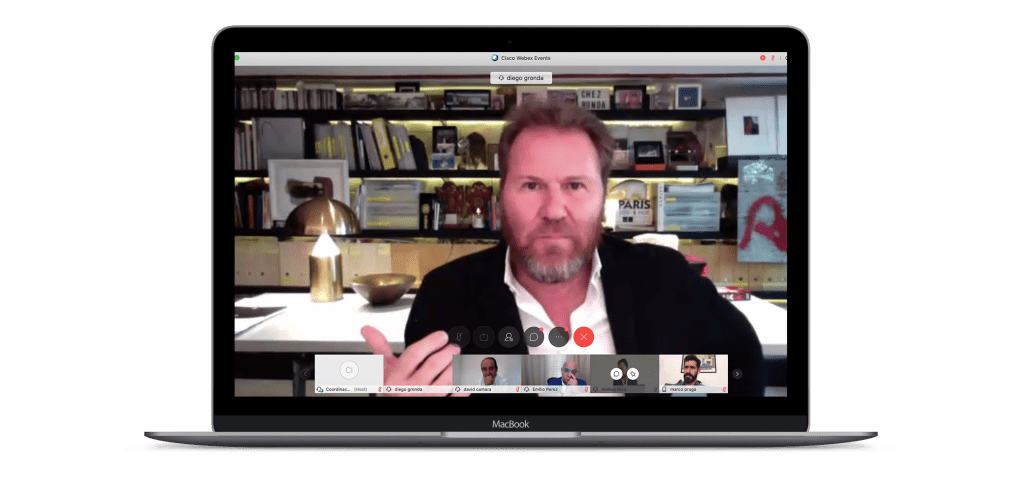
“The challenge of design will be to find an intuitive way to communicate to convey trust. Who reads the instructions for something? No one. And in a hotel, neither. We are not going to go to rest in a place where they keep reminding me of protocols: we are looking for someone to explain their commitment to safety and hygiene but, above all, we have to be able to intuit it and deduce it,” he said.
Gronda also stressed the concept of “experience”, a factor that goes far beyond the guest’s point of view: “We are designing everything as an experience, but the experience in a restaurant is also if the waiter comes with a smile. And if I complicate that waiter’s job by forcing him to walk up and down steps, he won’t reach the customer with a smile. When it comes to design you have to understand the user, the operator, the owner… but putting yourself in their shoes. If you try to understand it your way, you’re lost. You have to understand them,” he said.
The CEO of Studio Gronda also bet on providing spaces with a great capacity for change and transformation: “They must be alive and be able to show how they can evolve, how we can give 2-3 perspectives of the same space. This is achieved by working hand in hand with the operator, understanding the brand and seeing how we can give them a multifunctional platform with the ability to transform for different needs. That is why it is necessary to think ‘outside the box’. We must understand that it is a challenge that only works when we ask the right questions and we know how to listen to the owner, who has to be able to make money. And understand the user and how they see the world differently.
“The hotelier doesn’t have to have a hotel, he has to have a tool with the capacity to transform himself in 24 hours. That affects everything: the architecture, the design, the interior design… That’s why we all have to be working together from the beginning”, he said.
“At the level of materials, some are going to suffer. But we need a lot of textures, to touch, to feel, to stimulate our senses. We need that magic that hotels give us in the face of a world that is too digital,” added Gronga.
The head of Studio Gronda also stressed the story-telling: “The fact that there are so many brands is to be closer to each user who is looking for a particular story. We love to be told stories, and a brand that wraps us up like a mother, a father, like a friend, will be more and more serious”.
“There will be new crises, but the important thing is not to lose your memory. The design must be prepared to have light, flexible structures, to be very close to the operator, the client, the user… to be able to react”, he concluded.
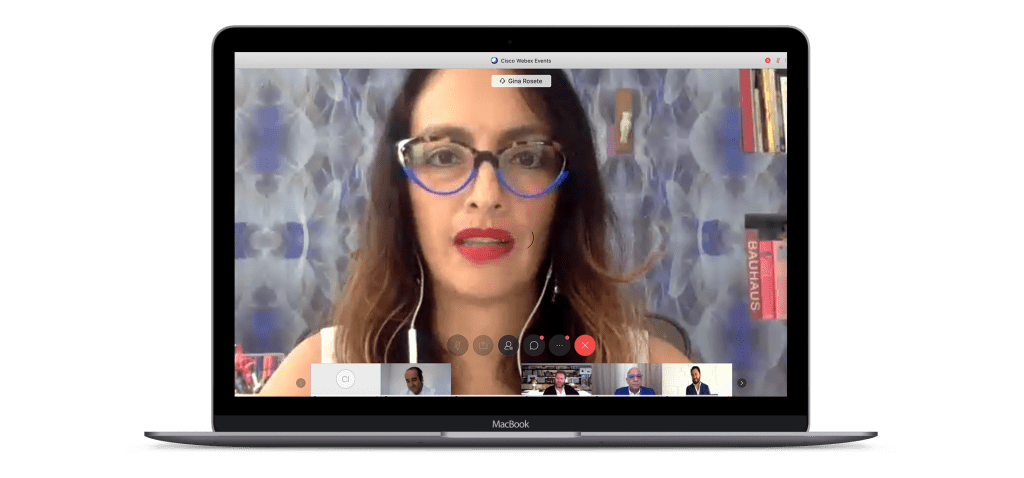
Gina Rosete, general manager of Tropiqa Design Studio, also stressed the need to place the user in the center, “but not just the guest. I also care about who is cleaning the room, who is the waiter…”. Rosete also bet for a greater role of technology in the sector: “Technology does not have to imply a dehumanization, it implies that the work of the person who is dedicated to hospitality shows his interest in your experience”.
“Design has to be democratized. We have to see what are the immediate and medium-long term solutions to give well-being, see what we can improve and how we can help investors and users. Until now, some clients did not want to invest in certain solutions because they raised the budget by bringing more technology, but our responsibility is to show that we will weigh the pros and cons of each proposal. We must ensure that the purchases we propose are smart,” said Rosete.
The Tropiqa CEO also focused on user experiences: “People are going to collect souvenirs in a hotel. I’d rather travel than buy a watch. What about, for example, a restaurant these days? You can look for innovative solutions and experiences, like offering to pick up the menu but nice and well set up, with the dishes, so you can have dinner at the same time. Or think about how the kids club can work, how to design the outside spaces… You have to get a life and be aware that the only permanent thing is change. The security of something does not exist”.
Rosete also advocated increasing the visibility and transparency of the processes: “You have to show how well you do things. In a show-cooking, for example, seeing how things are cooked gives more confidence than not knowing where the food comes from”.
And, finally, he defended the collaboration between all the actors of the Contract Channel: “The most satisfying thing is being able to discover people we would not have met if we had continued in the same role, and now we can share, reflect and increase our experiences”.
More technology, more innovation
Matías Celdrán, manager for Mexico and the Caribbean of Zennio Avance y Tecnología, S.L., pointed out that the current situation “is going to serve us to enhance the value of design, the things we do and why” and defended the integration of technology: “There are times when we should not be afraid of integrating technology if it helps us to improve. But we can’t ask the client to download 30 applications, we have to integrate the solutions to take care of the user. It is necessary to simplify the systems”.
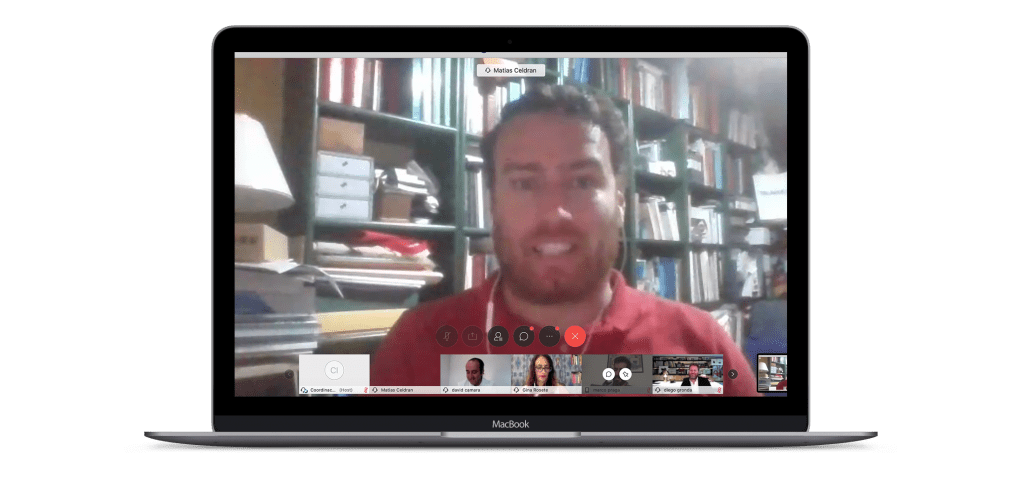
“Contact-less solutions are going to have a boom but they are not going to be definitive because they are not going to be perfectly integrated. What we have closest to us is always our telephone and, at least in the first phase, this will be the most important thing. In the variety of solutions is the success,” added Celdran.
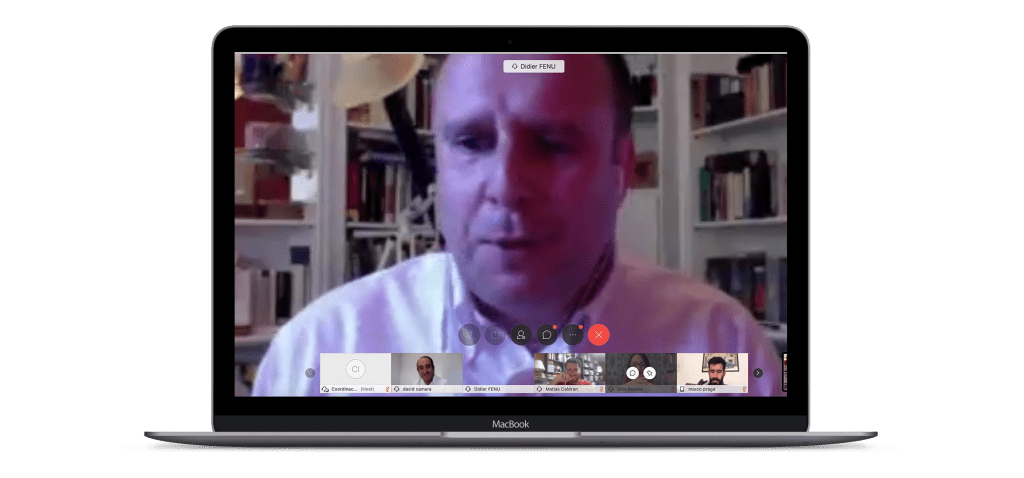
Didier Fenu, CEO of Serastone Systemclip, bet on being coherent and working “with people who have the same understanding of the world to be able to give answers to uncertainty”, defining it as “a Lego box, which can be a rocket, a wall, a car…”, to be able to adapt the solutions to every need. “I believe a lot in the theatre, in the backstage, in how the play works. That’s where we have to work as a tribe,” said Fenu, who also defended the need to bet on the circular economy and the value that comes with the word “industrial”.
“We are a company that comes from the crisis of 2008 and what we are clear about is that there is a future, a return. We have to know how to respond with options to uncertainty, to give confidence”, he concluded.
Source: Aragón Exterior
